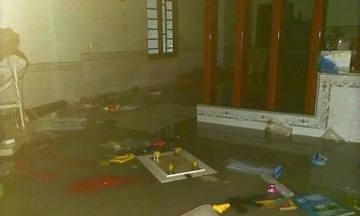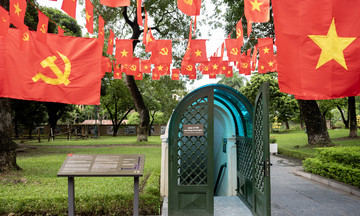The amended Law on Civil Servants, passed by the National Assembly on 24/6 and effective from 1/7/2025, adds a specific list of prohibited acts for civil servants. Specifically, civil servants are prohibited from avoiding, shirking, or passing off duties; forming cliques and causing disunity; arbitrarily taking leave or abandoning work; participating in strikes; and making statements, posting, or disseminating false information that harms the reputation of the country, localities, or their workplaces.
The law also prohibits embezzlement, corruption, negativity, wastefulness, profiteering, and harassment of citizens and businesses during official duties. Civil servants are also prohibited from illegally using public assets, abusing their positions or exploiting official information for personal gain.
Furthermore, the law prohibits all forms of discrimination based on ethnicity, gender, age, disability, religion, beliefs, or social background when performing official duties. Civil servants are also not allowed to engage in production, business, or personnel work that violates regulations on anti-corruption, thrift, anti-wastefulness, and protection of state secrets.
 |
Civil servants working at the Da Nang Administrative Center, 5/2024. Photo: Nguyen Dong |
Civil servants working at the Da Nang Administrative Center, 5/2024. Photo: Nguyen Dong
The new law defines the obligations of civil servants, requiring them to fulfill their duties properly and completely, and take responsibility for the results. They must proactively study, improve their qualifications, apply technology, and embrace digital transformation.
If violations are discovered within their agency, civil servants must report them to the competent authorities while adhering to regulations on protecting state secrets. Assigned public assets must be used efficiently and economically.
If given an unlawful order, civil servants must submit a written report to the decision-maker. If still required to comply, they must do so but simultaneously submit a written report to the immediate superior of the decision-maker. Having followed this procedure, the implementing civil servant bears no responsibility for the consequences; the decision-maker is held legally accountable.
The law stipulates that heads of agencies and units are responsible for organizing the implementation of anti-corruption, anti-negativity, thrift, and anti-wastefulness measures. They are held accountable for any violations that occur under their leadership and have the authority to strictly discipline subordinates who violate regulations, engage in bureaucratic behavior, arrogance, or cause trouble for citizens.
Previously, the 2008 Law on Civil Servants had clear stipulations regarding prohibited acts, primarily in articles 18, 19, and 20. These prohibited acts included: shirking responsibility, forming cliques, arbitrarily abandoning work, participating in strikes; illegally using public assets; exploiting authority for personal gain; all forms of discrimination; revealing state secrets; and engaging in production and business activities that violate legal regulations.
However, these regulations were mainly organized by groups of acts related to public service ethics, protection of state secrets, and prohibitions under specialized laws such as the Anti-Corruption Law and the Law on Thrift Practice and Anti-Wastefulness. Therefore, despite having a legal basis, the previous system of regulations remained principle-based and did not fully reflect new situations arising in the modern public service environment.
The 2024 amended law is not the first to introduce prohibitions, but it is the first to systematically, specifically, and comprehensively update the list of prohibited acts for civil servants. This law not only inherits previous regulations but also expands to cover new acts such as spreading false information, using social media to negatively impact agencies and localities, delaying or avoiding responsibilities, and failing to report unlawful orders.
Completing these regulations in a stricter, clearer, and more comprehensive manner is expected to strengthen administrative discipline, standardize public service ethics, and create a solid legal basis for handling violations, thereby building a contingent of honest and professional civil servants.
Vu Tuan












